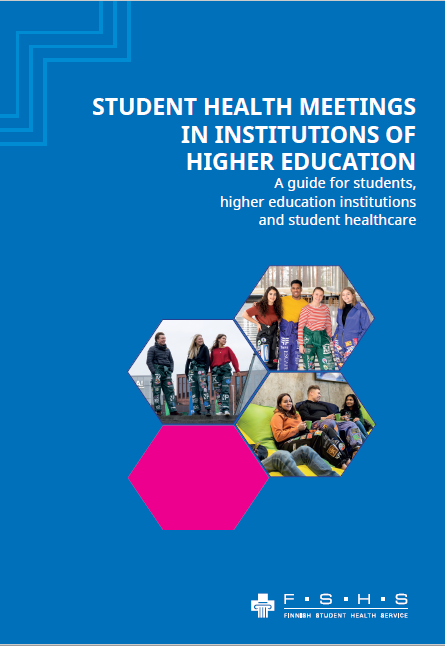Student health meeting
If a student’s ability to study is impaired for health reasons, the student, the institution of higher education and FSHS representatives should meet to discuss the most appropriate support measures.
When should a student health meeting be arranged?
- After a sickness allowance period of more than two months.
- If a student suffers a sudden or serious illness that is likely to result in a recovery period of several months and an impaired ability to study.
- If a student is not able to study but is not officially on sick leave.
- In situations where study progress is delayed and the student’s right to study is about to expire without the student being able to complete their studies.
- If a student needs to submit a certificate to a higher education institution to extend their right to study.
- If a student needs to submit a certificate to Kela regarding their study grant.
- If there are problems with a student’s behaviour, changes in their ability to study or recurrent sick leaves, or known or suspected use of intoxicants.
- Student health meetings are part of the assessment of unsuitability to study under the SORA legislation.
- A treatment referral meeting, as stipulated in the substance abuse programme for students (Unifi, 2019), is also a type of student health meeting.
A request for a student health meeting can be made by the student or with the permission of the student by teaching staff, staff at the welfare services or study administration, or student healthcare staff.
The purpose of student health meetings is to allow the student, the institution of higher education and student healthcare staff to find ways to promote studying and improve the student’s ability to study. The meeting will examine the extent to which the student’s ability to study is impaired, how it shows and what the cause is.
The parties will look for ways to improve the student’s ability to study and how they could continue studying despite the problems or resume studies without any further adverse effects on health and ability to study or recurrent sick leaves. The contents and principles of student health meetings are similar to those of occupational health meetings but the statutory frameworks are different.
Three parties are represented in a student health meeting. Together they try to find common aims and solutions that combine health, well-being and studying in the best possible way. It can be a single meeting, or there can be several meetings to support the student’s ability to study.
In seeking ways to overcome the obstacles facing the student’s ability to study, the focus is on special teaching arrangements, other support measures within the higher education institution, and special support or other measures provided by the FSHS. The aim is to create a comprehensive plan that takes into account the measures to be taken by all parties and, if necessary, secures the student’s income during the period of impaired ability to study.
Students themselves carry the main responsibility for maintaining and monitoring their ability to study but, if necessary, they can turn to student healthcare services and the services provided by higher education institution for help.

